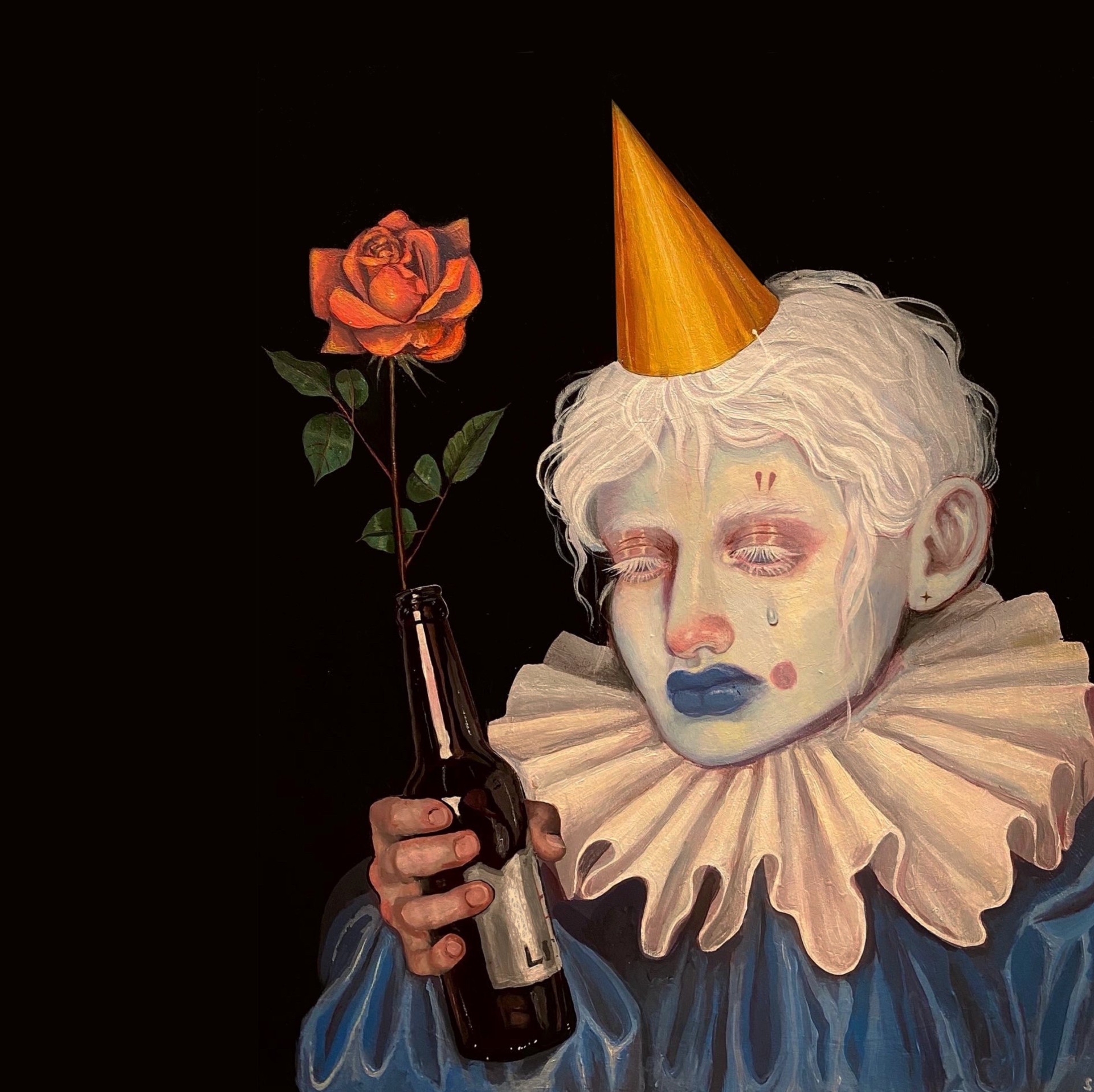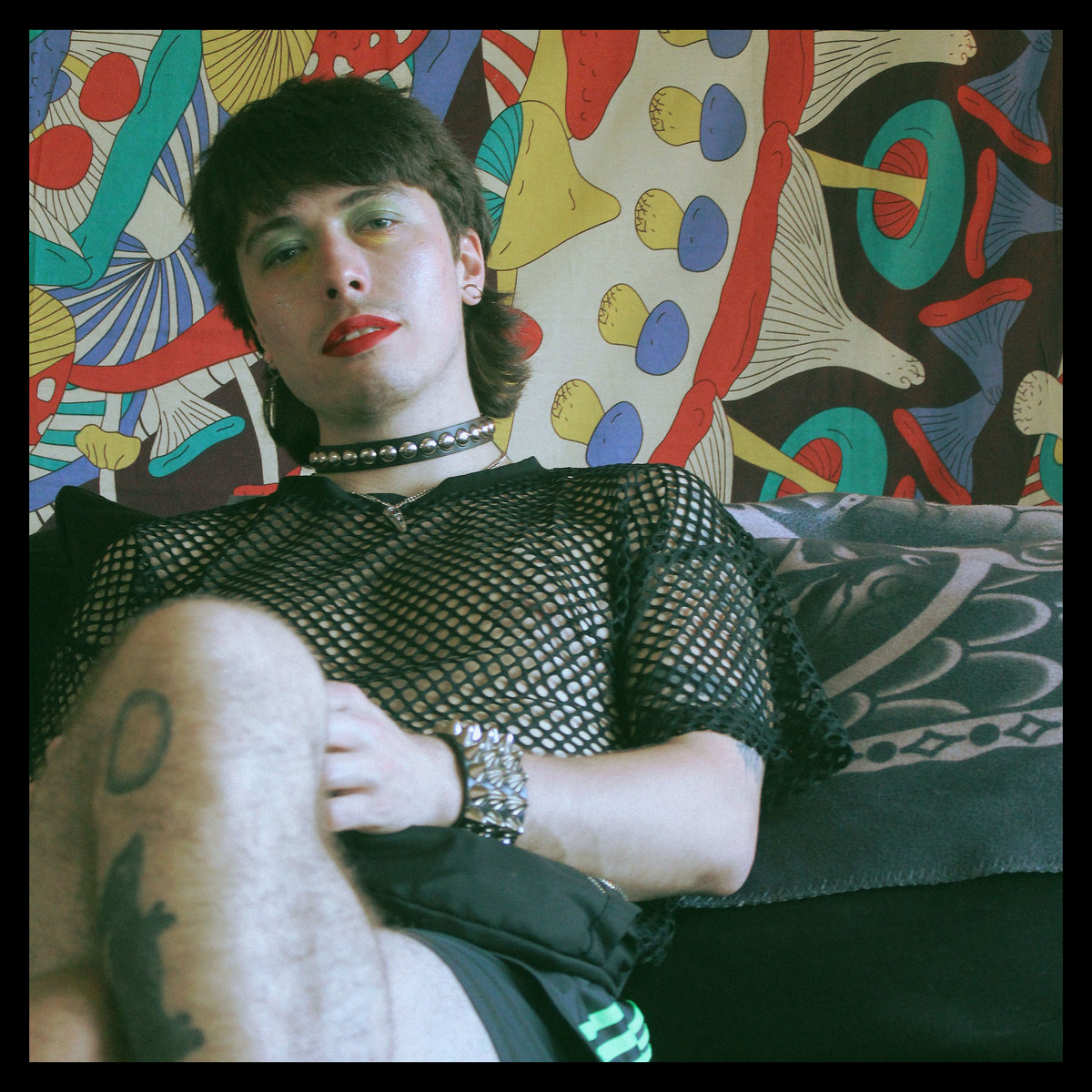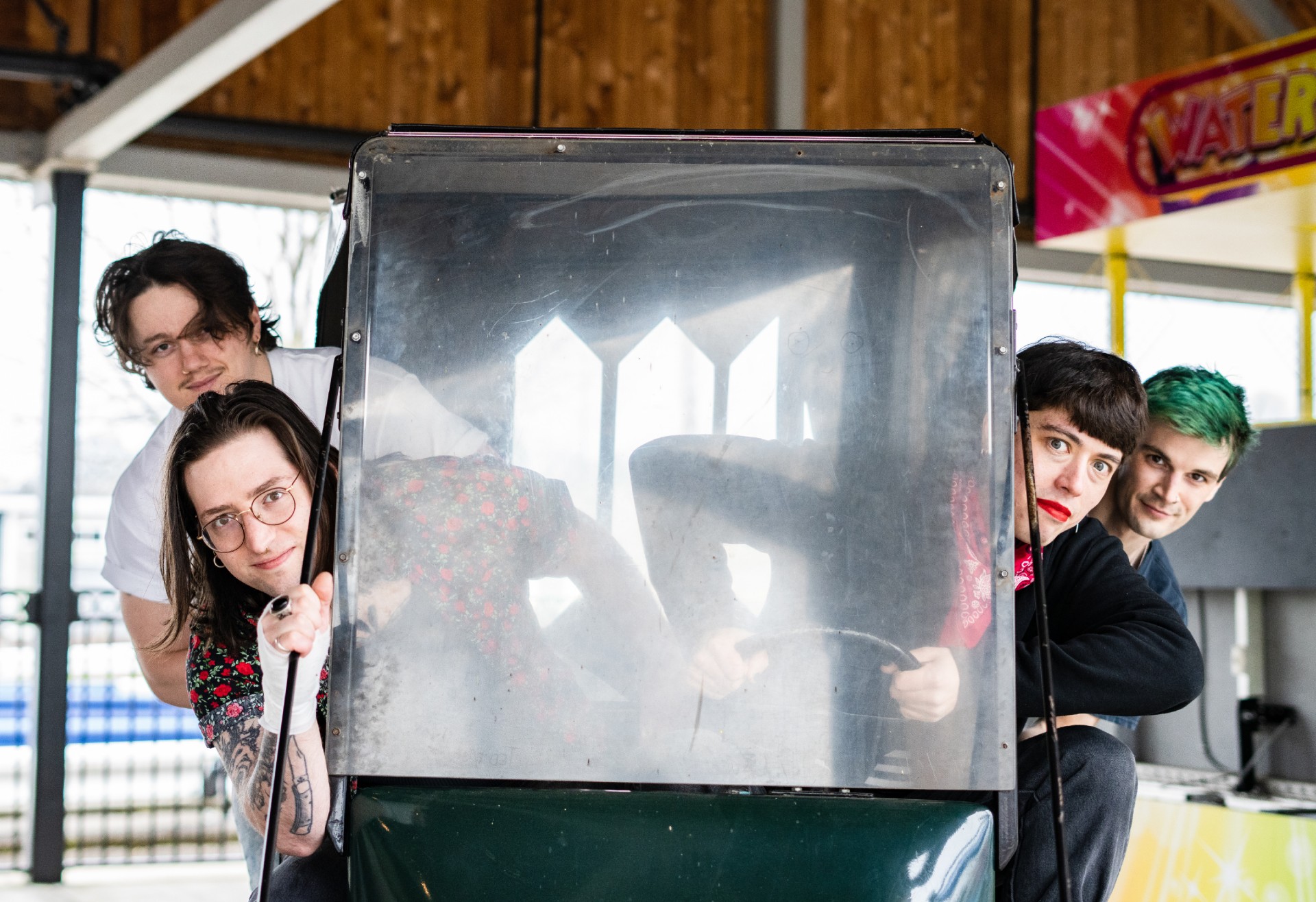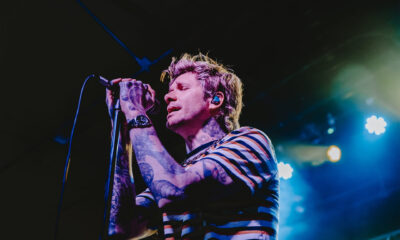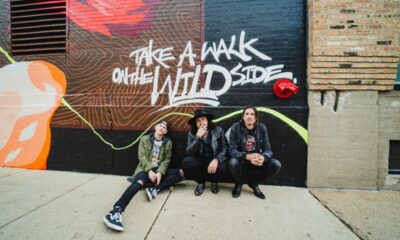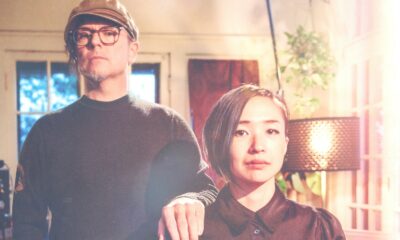Alternative/Rock
Summer Houses Interview: Hazel Sterling Clemente on the Band’s Evolution and Finding Identity via Music
V13 caught up with Summer Houses’ Hazel Sterling Clemente to discuss Frantic Hearts’ themes of isolation and the Portland music scene.
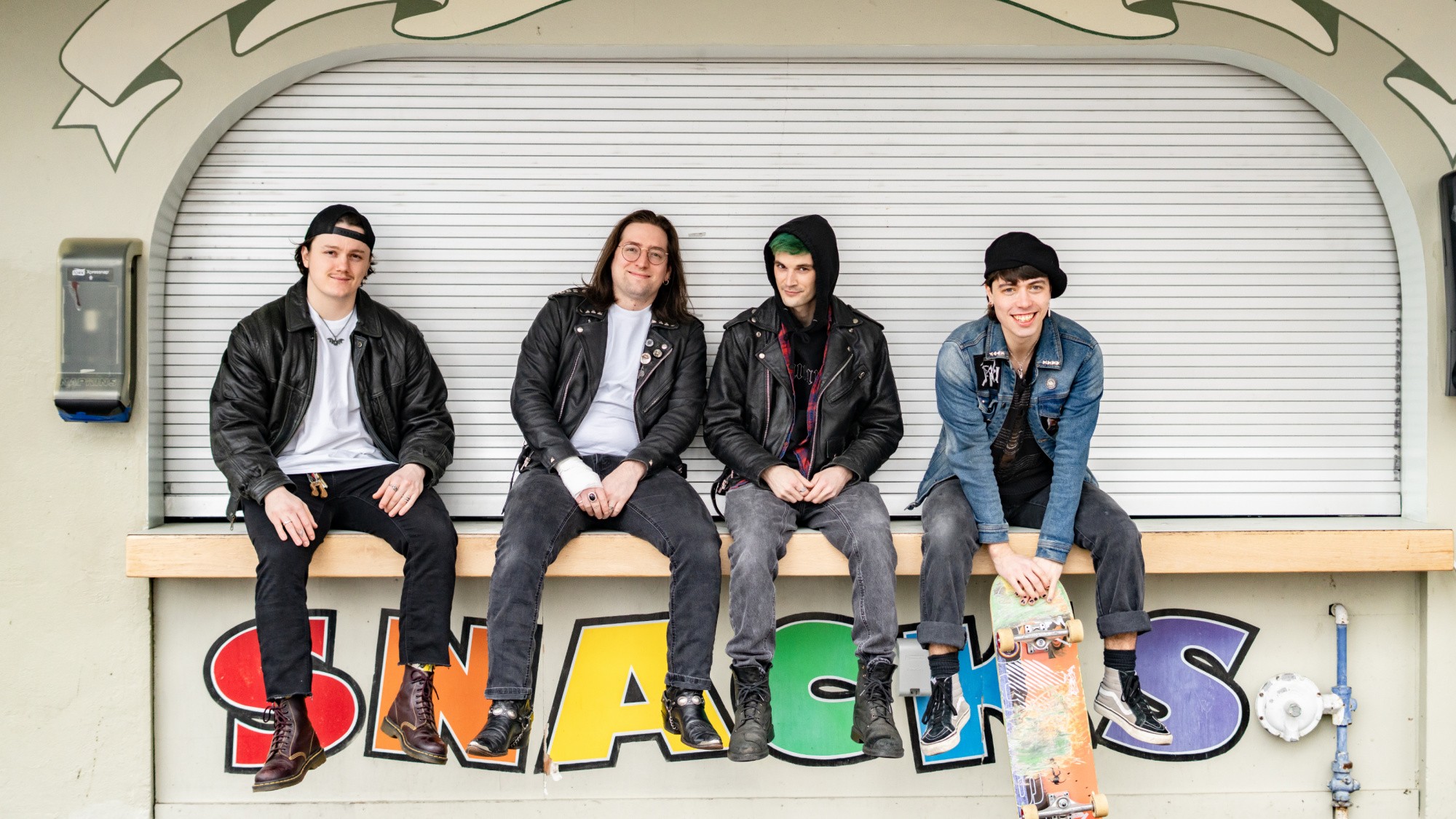
Portland-based alternative band Summer Houses’ debut album, Frantic Hearts, blends elements of nerd punk, grunge, and Dadaist/lounge-lizard funk into innovative, decidedly edgy music.
There’s a raw, marvellous effrontery to Summer Houses’ sound, one that puts the band against the conventions of music with their visceral and visual explorations. As they disengage themselves from traditional expectations, they deliver an articulate musical philosophy that’s far from passive. Like a slap in the face, it cuts through the rodomontade and piffles.
V13 caught up with guitarist/vocalist Hazel Sterling Clemente to discuss Frantic Hearts’ themes of isolation, the Portland music scene, and recording in the studio.
What inspired your new album, Frantic Hearts?
Hazel Sterling Clemente: “A lot of the progressions and melodies we used on the album were recycled from underdeveloped ideas I had in my previous bands as a teenager/young adult. I had founded different bands exploring all kinds of DIY punk subgenres, like garage rock, doom metal, 77 punk revival, skramz, powerviolence, and more experimental stuff through drone and noise collaborations. For me, music is a way to explore different emotional spaces and as a group, Summer Houses is a way to explore as many as we can while also providing a fun and energetic environment for our audience.
“The themes were inspired by my time spent in the isolated space of American male identity and feelings of failure attempting to live up to the seemingly impossible (for me) standards of the roles expected of me within the gender binary and the blue-collar workforce. When the pandemic happened the pressure of these roles intensified greatly; all of my positive social environments vanished and I was left to a life of dealing with emotionally hostile relationships in the practical part of my life, coworkers, roommates, my father.
“In those years, I gave up on a satisfactory life that I could live and put all of my emotional energy and what little free time I had after work into composing Frantic Hearts, with it in mind that if I’m doomed to live without connection or being seen as myself in my daily life, then the only thing I can do is leave behind exactly how I feel in hopes that someone I may never meet will hear it and see me.
“The three years it took for the album to go from loose musical and poetic ideas to the finalized piece was a brutal challenge every day of my life, as this was by no means the healthiest mindset to approach a project. But once the band was able to get back together to rehearse and sculpt the final versions of these songs, we had what felt like the winds of destiny under our wings and powered through to the end.”
Who is in Summer Houses and which instrument do they play?
“Summer Houses is my best friends Max Minde on drums, Mitchell Raymond on bass, Dylan Barstow on keyboards, and I’m Hazel Sterling Clemente, and I play guitar and do vocals.”
What’s the music scene like in Portland?
“Right now, it’s very chill; there’s a lot of really talented and sonically diverse bands that have popped up since live music started happening again. I’ve been in the scene for over ten years now and I’ve seen it go through a lot of changes, usually stemming from people migrating to and from Portland. I’d say right now, while it’s not the most experimental or wild incarnation of the local music micro movement I’ve seen, it’s definitely the most solid and consistent it’s ever been.
“We’ve been able to play paid gigs twice a month for the entire past year and a half and I’ve seen many of our very much deserving contemporaries do the same. People are still excited and appreciative of live music, many of the spaces themselves have taken the time to create well-developed atmospheres and there’s not a whole lot of genre elitism; at least not nearly as much as I’ve seen in the past. But that’s also sort of the thing that has remained the same over all these years, the cliques and hard barriers between the different sounds and aesthetics.”
How did you get started in music?
“I started practicing and performing music at a very young age as a member of my elementary school’s children’s choir. We performed very often all-around town, at the mall, Portland community events, and assisted living centers. I had a very harsh and high-strung choir director who was particularly hard and frankly outright hostile towards me, and it eventually made me completely resent the more formal forms of music. I didn’t want to take guitar lessons anymore; I lost interest in learning the piano and having a pretty voice felt phony.
“In my adolescence, I looked up to artists like Lou Reed, Patti Smith, Sonic Youth, the SST catalog, Beat Happening, etc. All that DIY, indie, wrong side of the tracks artists. Music became a space for me to escape abuse at home and torment at school; it was the only space where I made sense in the world, or at least it felt like I could use it to leave a world that didn’t make sense to me. Through my teenage years, I ignored my studies completely and focused on writing zines, going to protests, being overwhelmingly sad, and writing and practicing music with my band, Flight 19.
“Flight 19 became the center of a large group of disenfranchised kids in Southeast Portland. We played about once a week at a place called Laughing Horse, a radical, nonprofit info shop and one of my homes away from homes. It was not really a ‘punk scene;’ we all had very poor fashion senses and many of us didn’t even like punk music at all, but we all found solace in the energy of the musical spaces we made. We felt alive and seen as who we are while we were throwing each other around, being completely silly, breaking things, crashing adult events, climbing onto buildings, and making awful music and sharing it with each other. This was my start in music.”
Did your sound or the sound of Summer Houses evolve naturally, or did you push it in a certain direction?
“A little bit of both. Typically, what happens is I become obsessive with an artist or a movement and will then write basic compositional ideas based on what I’m learning from my obsession. I then use my Tascam 4-track to make tons and tons of demos exploring different ways to approach the idea until I feel that the idea is robust enough to bring to the boys. From there, it becomes a total collaborative effort to fill out the arrangement and craft what the actual song will sound like.
“Through trial and error and lots of happy accidents, the song eventually settles into what it’s going to be for the recording. Oftentimes, this final version will be vastly different from what initial, probably unreasonably grandiose dream I was having for it in the first place. I regain some semblance of control over the composition during the tracking process by making slight adjustments to fill out the details of the songs. This process keeps our sound pretty fresh as I feel like we can really explore anything, and it will still sound like us. I used to tell that to my genre-specific bands, we can do anything, and it’ll still sound like us since it’s us playing the music.”
Are there any special recording techniques you use in the studio?
“I like to keep a lot of natural room noise present in the recordings, but I also am a firm anti-realist, so I also like to do some wall of soundy kinda sonic layering, particularly with the guitar tracks. The guitar is a really good instrument for layering because of its capacity to make unique chord combinations using multiple voicings for the same notes, or neighboring 7ths and 9ths.
“Another technique I like to use is some Jackass/John Cassavetes-style friendship torture to turn up the heat on my bandmates during tracking; for example, sitting in the iso-room a few feet from Mitchell watching his every move as he records the bass track for ‘They Said It Wouldn’t Rain,’ giving him new bass lines to do between takes.”
How do you keep the Summer Houses sound consistent on stage?
“The four of us are all pretty gear savvy and I try to make notes about how my equipment adapts to different spaces. But I also think it’s much easier to keep our sound consistent now that we’re a quartet. When I first started the project, I wanted there to be three guitarists. We were playing house venues exclusively at this time and it sounded so harsh and loud. Also, having there be that many people in the group resulted in fragmented practices with different members at different times. Dylan and Mitchell hadn’t even met each other for the first two years as a group. Then one of our members became a globe-trotting English Language Teacher/Drone Wizard/Covert Enemy of The State and the band solidified in its first functional incarnation as a quintet.
“Two guitars together were still very conflicting on stage considering the kind of sound we were after; it always sounded too chaotic and harsh. When that fifth member left to pursue his own band, the four of us felt like we could breathe in all the sonic space that had opened up. In short, it’s pretty easy to sound good together when each of us are playing completely separate instruments.”
What inspires your writing? Do you draw inspiration from poems, music, or other media?
“I take in a lot of different mediums for inspiration, but I get a lot of my inspiration specifically from poetry, painting, and the art of filmmaking. I’m a bit of a student of the idea of ‘tone painting’ and ‘program music’ and share Brian Eno and Brian Wilson’s drive to make ‘visual music.’ In particular, there’s a handful of artists outside of music that I feel have had significant impact on my music thus far: Keith Haring, Frances Bacon, John Cassavetes, Bob Kaufman, and of course David Lynch. I also love cartoons and comic books and theme parks.”
What can you share about Summer Houses’ writing process?
“Writing lyrics and poetry is a bit of an intense thing for me. Sometimes I don’t want or feel like I can write at all for like six months, then I’ll go through another phase where it’s all that I want to do every waking moment I have. My words go through a similar process as my music, I’ll sit at an archaic piece of clunky, inconvenient technology (my typewriter), and come up with tons of notes and phrases. Also, different combinations of verses and stanzas until I feel an idea is ready to bring to practice.”
Which artists, in your opinion, are killing it right now?
“Local bands I’m really stoked on include Moth Kit, Shaylee, Stainless, Crucified Class, Blushbutton, and my boys The Upkeeps.”
What can your fans look forward to over the next six months? Music videos? Live gigs?
“We’re working on a couple of new tracks for a split we’re doing with Counterfeit Kubrick. Production will happen this fall. On top of that, we got a couple of local shows, and we have a slot at this year’s Punx in the Woods Festival on Labour Day Weekend.”
-

 Music2 weeks ago
Music2 weeks agoTake That (w/ Olly Murs) Kick Off Four-Night Leeds Stint with Hit-Laden Spectacular [Photos]
-

 Alternative/Rock5 days ago
Alternative/Rock5 days agoThe V13 Fix #011 w/ Microwave, Full Of Hell, Cold Years and more
-

 Alternative/Rock2 weeks ago
Alternative/Rock2 weeks agoThe V13 Fix #010 w/ High on Fire, NOFX, My Dying Bride and more
-

 Features1 week ago
Features1 week agoTour Diary: Gen & The Degenerates Party Their Way Across America
-

 Indie5 days ago
Indie5 days agoDeadset Premiere Music Video for Addiction-Inspired “Heavy Eyes” Single
-

 Music2 weeks ago
Music2 weeks agoReclusive Producer Stumbleine Premieres Beat-Driven New Single “Cinderhaze”
-
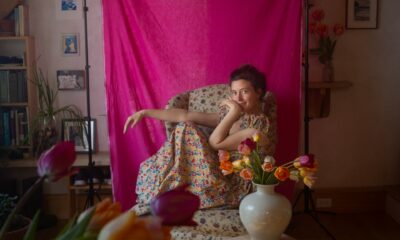
 Folk5 days ago
Folk5 days agoKatherine Perkins Strikes the Right Tone with Her “Hold On” Music Video Premiere
-

 Country1 week ago
Country1 week agoBrooke Ashton Chats About Her “Someone” Single, Creative Process, and More!

